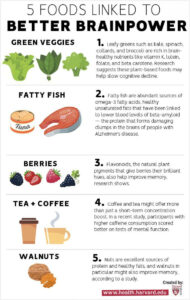Vitamin B12 benefits include promoting red blood cell production and maintaining neurological function. It is crucial for supporting energy production, DNA synthesis, and a healthy nervous system.
In addition to these primary benefits, vitamin B12 also aids in maintaining cognitive function, improving mood, and supporting a healthy cardiovascular system. This essential nutrient is most commonly found in animal products such as meat, fish, eggs, and dairy. However, individuals following a vegetarian or vegan diet may need to supplement with vitamin B12 to ensure they meet their daily requirements.
We will delve deeper into the various benefits of vitamin B12 and explore how it contributes to overall health and well-being.

Credit: fitaminat.com
Table of Contents
Understanding Vitamin B12
Vitamin B12, also known as cobalamin, is a water-soluble vitamin that plays a crucial role in various bodily functions. It is essential for the formation of red blood cells, DNA synthesis, nerve function, and the metabolism of proteins, carbohydrates, and fats.
Vitamin B12 is required for the proper functioning of the nervous system. It helps maintain healthy nerve cells and plays a vital role in the production of myelin, a protective coating that surrounds nerves. This vitamin also aids in the metabolism of homocysteine, an amino acid associated with cardiovascular health. Additionally, vitamin B12 supports the production of red blood cells, which are responsible for carrying oxygen throughout the body.
| Food Sources | Amount of Vitamin B12 (mcg) |
|---|---|
| Beef liver | 70.7 |
| Clams | 84.1 |
| Tuna | 9.3 |
| Fortified cereals | Varies |
Vitamin B12 is primarily found in animal-based foods. Good sources include beef liver, clams, tuna, and fortified cereals. For individuals following a vegetarian or vegan diet, fortified plant-based milk, nutritional yeast, and certain algae-based products can serve as alternative sources of vitamin B12.
Importance Of Vitamin B12 For Physical Health
Vitamin B12 plays a crucial role in maintaining our physical health. It provides several benefits that contribute to our overall well-being.
Vitamin B12 is essential for the production of red blood cells, which carry oxygen throughout the body. Sufficient levels of B12 can help prevent fatigue and boost energy levels. This can be particularly beneficial for individuals with low energy or those who lead active lifestyles.
Another important role of vitamin B12 is in maintaining a healthy nervous system. It helps in the production of myelin, a protective covering for nerve cells, ensuring their proper functioning. B12 deficiency can lead to nerve damage and result in tingling sensations, numbness, or even difficulty in maintaining balance.
B12 is known to assist in the metabolism of fats and proteins, helping the body convert food into energy efficiently. A well-functioning metabolism is crucial for maintaining a healthy weight. Adequate B12 levels can also aid in digestion, promoting the absorption of nutrients and preventing digestive issues.
Mental Health Benefits Of Vitamin B12
Vitamin B12 plays a crucial role in improving cognitive function. It helps in the production of neurotransmitters, which are essential for transmitting signals in the brain. Research has shown that vitamin B12 deficiency can lead to cognitive impairment and memory loss. By ensuring an adequate intake of vitamin B12, you can enhance your cognitive abilities and maintain brain health.
In addition, vitamin B12 has been linked to the prevention of depression and anxiety. Studies have found that low levels of this vitamin are associated with an increased risk of developing these mental health conditions. By including vitamin B12-rich foods or taking supplements, you can support your mental well-being and reduce the likelihood of experiencing depression or anxiety.
Overall, ensuring sufficient intake of vitamin B12 is crucial for mental health. It not only improves cognitive function but also helps in preventing depression and anxiety while supporting overall brain health.
Other Health Benefits Of Vitamin B12
Vitamin B12, found primarily in animal-based foods like meat, fish, and dairy products, is well-known for its role in maintaining healthy nerve cells and producing red blood cells. However, it offers several other health benefits as well.
One of the lesser-known benefits of vitamin B12 is its ability to help maintain healthy skin and hair. It plays a crucial role in the production of DNA and RNA, which are responsible for the growth and repair of cells, including those of the skin and hair.
In addition to its impact on the skin and hair, vitamin B12 also strengthens the immune system. It helps in the production of white blood cells, which are vital for defending the body against infections and diseases. A strong immune system can help prevent illnesses and promote overall well-being.
Another important health benefit of vitamin B12 is its potential to reduce the risk of heart disease. This vitamin helps in regulating homocysteine levels in the body, an amino acid that, when present in high levels, increases the risk of heart disease. By keeping homocysteine levels in check, vitamin B12 helps protect the heart and cardiovascular system.
Addressing Vitamin B12 Deficiency
Vitamin B12 is an essential nutrient that plays a crucial role in various bodily functions. Addressing Vitamin B12 deficiency is important to ensure overall health and well-being. There are several common causes of Vitamin B12 deficiency, including a lack of dietary intake, impaired absorption due to conditions such as pernicious anemia or gastrointestinal disorders, and certain medications that interfere with B12 absorption.
Recognizing the symptoms and warning signs of Vitamin B12 deficiency is crucial for early intervention. These can include fatigue, weakness, pale skin, tingling or numbness in the hands and feet, and difficulty concentrating. If left untreated, Vitamin B12 deficiency can lead to more serious complications, such as nerve damage or anemia.
Treating Vitamin B12 deficiency typically involves B12 supplementation through oral tablets, injections, or nasal sprays. In some cases, dietary adjustments may also be recommended to increase B12 intake. Regular monitoring of B12 levels is essential to track progress and adjust treatment as needed.
Recommended Daily Intake And Safety Considerations
Vitamin B12 is an essential nutrient that plays a crucial role in many bodily functions. It is important to ensure that you are meeting the recommended daily intake of Vitamin B12 to maintain optimal health.
For most adults, the recommended daily intake of Vitamin B12 is 2.4 micrograms. Pregnant and breastfeeding women may require higher amounts.
Vitamin B12 is found naturally in animal-based foods, such as meat, fish, eggs, and dairy products. If you follow a vegetarian or vegan diet, you may need to consider taking a Vitamin B12 supplement or consuming fortified foods.
Excessive intake of Vitamin B12 is generally considered safe, as it is a water-soluble vitamin and any excess is excreted through urine. However, extremely high doses of Vitamin B12 supplements may cause potential side effects and risks such as acne, headaches, and nausea.
In conclusion, ensuring that you meet the recommended daily intake of Vitamin B12 is important for maintaining optimal health. If you have any concerns about your Vitamin B12 levels, it is recommended to consult with a healthcare professional.
Frequently Asked Questions Of What Is Benefits Of Vitamin B12
What Is Vitamin B12 And Why Is It Important?
Vitamin B12, also known as cobalamin, is an essential nutrient that plays a crucial role in maintaining a healthy nervous system, aiding metabolism, and producing red blood cells. It is important for energy production, brain function, and the synthesis of DNA.
Deficiency of this vitamin can cause fatigue, weakness, and nerve damage.
How Does Vitamin B12 Benefit The Body?
Vitamin B12 has several benefits for the body. It helps in converting food into energy, supports the proper functioning of the nervous system, and aids in the production of DNA and red blood cells. It also helps maintain healthy skin, hair, and nails and supports brain health and cognitive function.
Who Is At Risk Of Vitamin B12 Deficiency?
Vitamin B12 deficiency can occur in individuals who follow a vegan or vegetarian diet as this vitamin is mainly found in animal products. Older adults, individuals with digestive disorders like celiac disease or Crohn’s disease, and those who have undergone weight loss surgery are also at higher risk of deficiency.
Regular intake of B12 is crucial for these groups to avoid potential health problems.
Conclusion
Vitamin B12 is an essential nutrient that offers numerous benefits to our overall health. From supporting the function of the nervous system to boosting energy levels, this vitamin plays a crucial role in maintaining our well-being. Its ability to promote red blood cell formation also contributes to improved cognitive function and a healthy heart.
Incorporating vitamin B12-rich foods into our diet or taking supplements can help ensure adequate levels of this vital nutrient, ultimately enhancing our overall quality of life.







